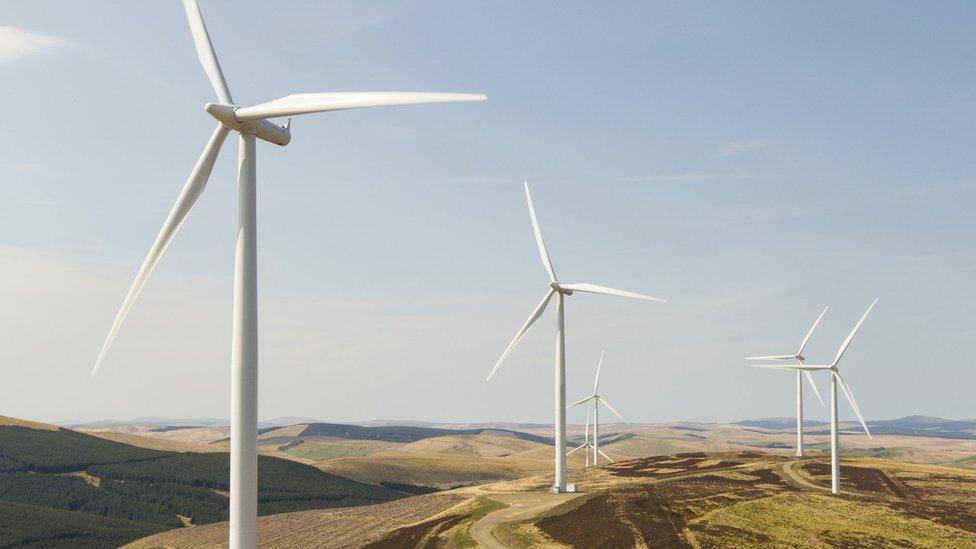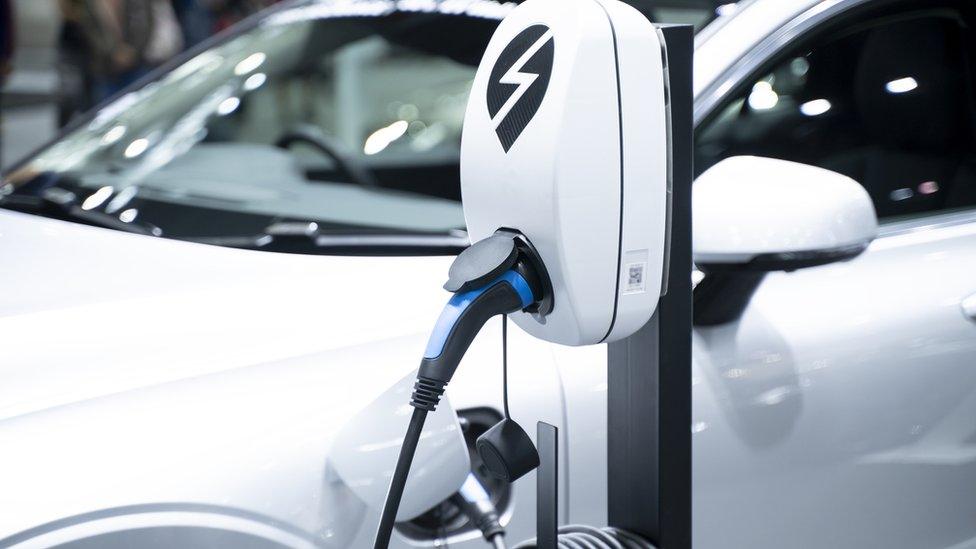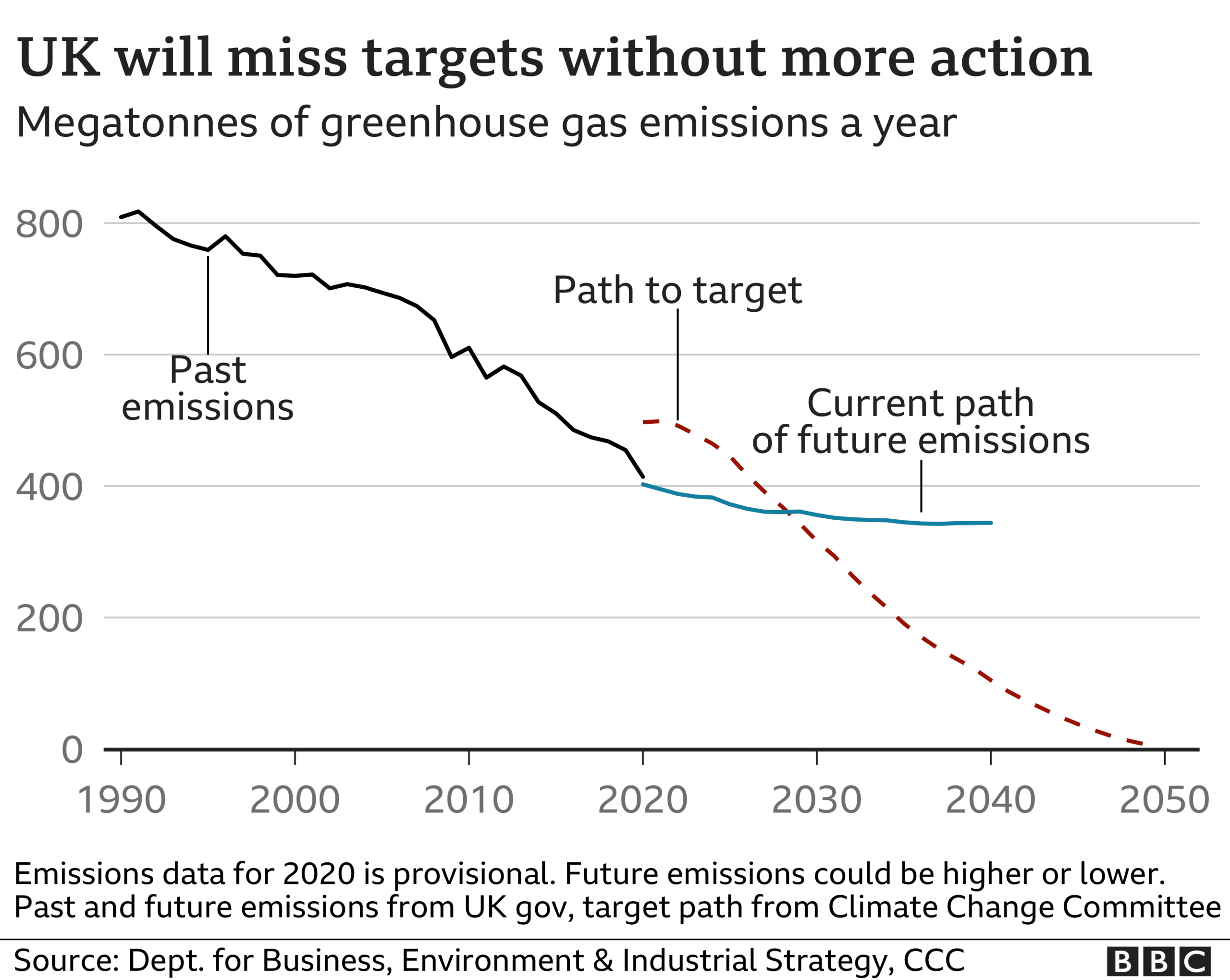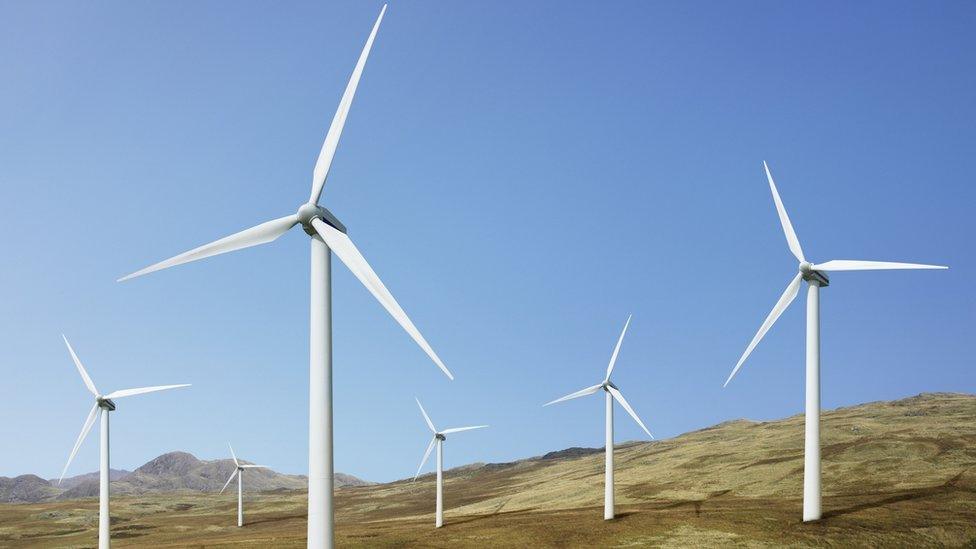Net Zero: What are the UK's latest targets and will we meet them?
- Published
- comments

In less than two weeks, Scotland will be hosting the United Nations Climate Change Conference (COP26), a massive world meeting on climate change.
Ahead of the conference, the UK's government has revealed its plans to help the country achieve net zero by the year 2050.
The government has outlined a number of things it would like to do to help the UK minimise or offset its carbon emissions.
But some people are unsure about the effectiveness of the plans that have been suggested.
It's part of a larger aim to fulfil the 2015 Paris Climate Agreement, where 197 countries promised to limit the rise in the world's average temperature to 1.5C above pre-industrial levels.
According to climate experts, in order to do this, member countries will need to reach 'net zero' in the next 30 years.
Net zero is the point at which a country is taking as much of these climate-changing gases out of the atmosphere as it is putting in.
That means emissions from homes, transport, farming and industry will have to be avoided completely or offset by planting trees or sucking CO2 out of the atmosphere.

What does the UK government want to do to achieve net zero?
The government wants to reduce its carbon emissions by 78% by 2035, and be net zero by 2050.
On Tuesday, it proposed the following ways to cut the UK's emissions:
£620m in grants for electric vehicles and charging points to encourage people to use electric cars over petrol and diesel fuelled cars
£350m to help the UK move to electric vehicles from petrol
Grants of up to £5,000 for for householders to install low-carbon heat pumps
£120m to develop small nuclear reactors, which don't produce carbon emissions
£625m to plant trees and restore peat, both of which can absorb carbon dioxide
More money for carbon capture and storage hubs
And previous to this, the government has also made the following promises:
A ban on the sale of petrol and diesel cars from 2030
All the UK's electricity will come from renewable sources by 2035
And a green tax on gas bills within the next decade, instead of electricity bills

What has the response to the government's plan been?
It seems that many people in the UK are supportive of policies to help the environment.
But sometimes the cost of policies can make a previously popular idea very unpopular.
Within the Conservative party, there has been some criticism of the government's plan as it will cost UK taxpayers money.
MP Craig Mackinlay said green policies may make re-election difficult once voters realise that the policies may "cost them money" or mean "a lifestyle that's not as convenient".
But the Minister of State for Business, Energy and Clean Growth, Greg Hands, said of the proposed plan to achieve net zero, "It's not just an environmental transition ... it represents an important industrial change too."
He's suggested that the government's scheme could support up to 440,000 jobs in the UK.
And the Prime Minister, Boris Johnson, has commented on how good the strategy could be for the economy as well.
He has promised to "unleash the unique creative power of capitalism to drive the innovation that will bring down the costs of going green".
Ed Miliband, who is the shadow environment secretary and member of opposition party Labour, said the plan did not go far enough.
He called the government's announcements "a massive let-down".
While Greenpeace UK's head of politics said the policies are "more like a pick and mix than the substantial meal that we need to reach net zero".
An independent group who sit apart from the government are assessing the new net zero strategy.
They are called the Climate Change Committee, and it's thought that their thoughts on the government's plans will be published in the next few days.
- Published22 April 2021

- Published31 October 2021

- Published19 October 2021

